Of all the WWII battleships still around today, the very first one I ever visited was the USS Missouri while visiting Pearl Harbor, the mother of all U.S. battleship museums. To stand on the deck where World War II finally and officially ended felt monumental.
Having the opportunity to explore the interior is such a gift to someone who would otherwise never see the inside of a battleship! To me, it was one of the most fascinating experiences—a museum visit like no other for many, many reasons.
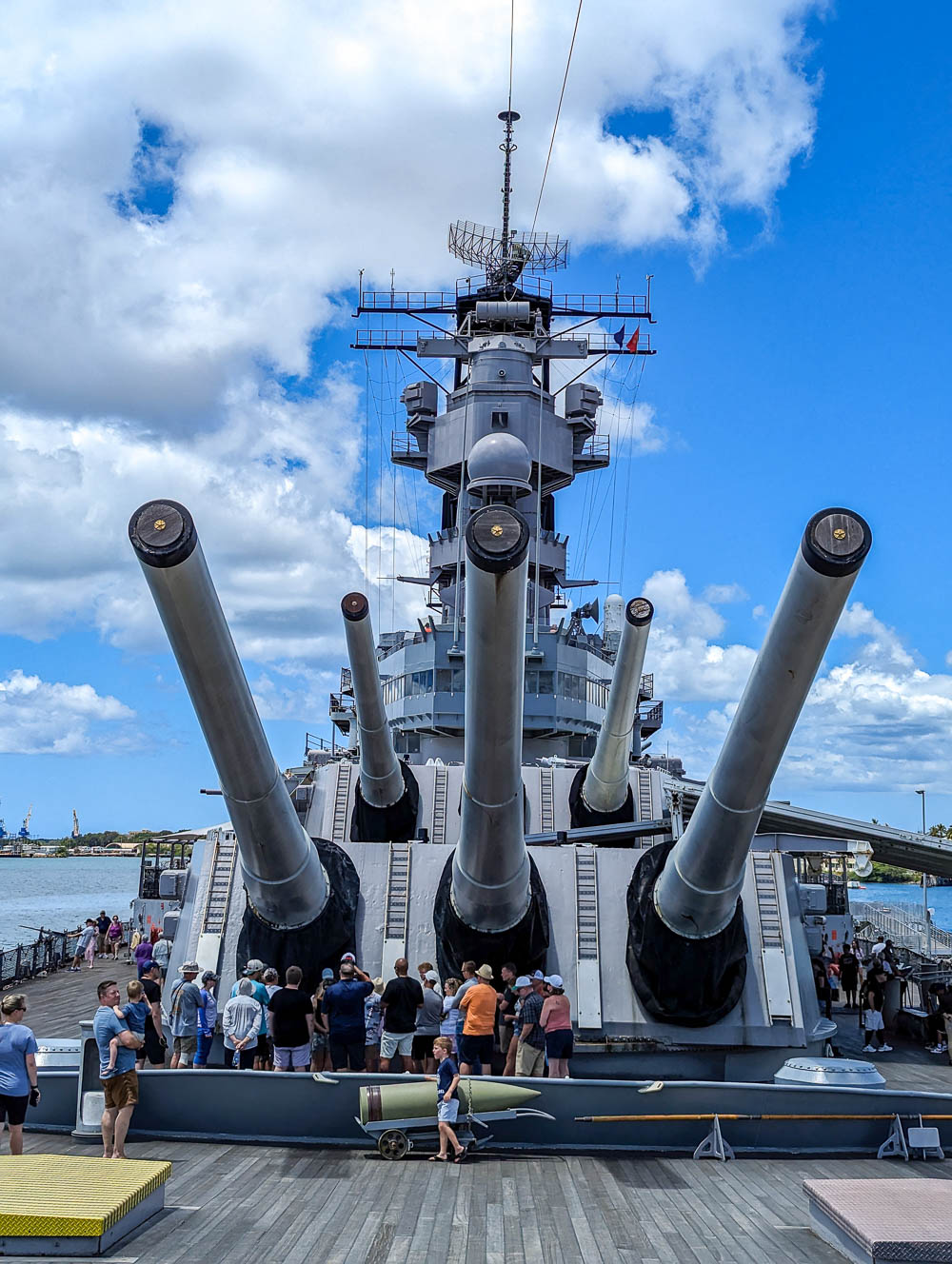
Now, I visit U.S. battleship museums whenever I get the chance. For the full list of U.S. museum ships, click that link—you can sort by ‘year launched’ to find those specific to World War II. And if you want to know why visiting these museums is so incredible, here you go.
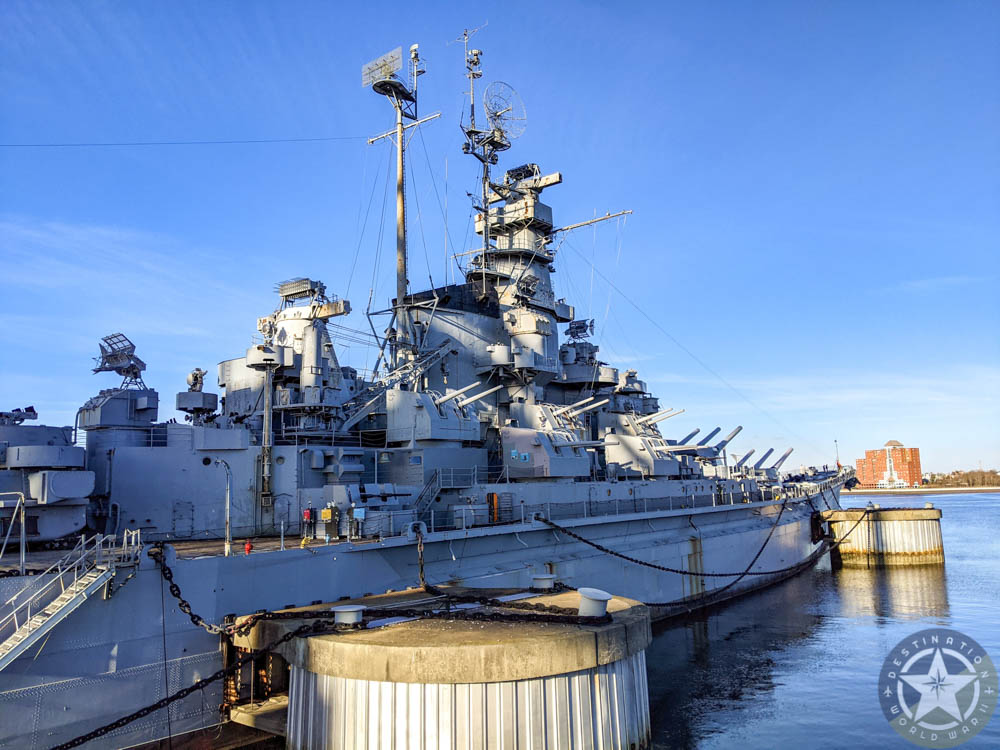
1. It feels like going back in time
Delving into these U.S. battleship museums, it truly feels like you’re going back in time. Due to the nature of these vessels, virtually nothing has been updated (beyond the critical elements) since the ship’s launch.
You’re able to check out the rooms and artifacts, learn about the ship’s history, and see the inner workings of a World War II battleship all as it originally looked in the 1940s. Many areas of these ships are set up exactly how they looked during the war: living quarters, mess areas, pantries, offices, and more. You’re surrounded on all sides by a very different time period, essentially submerged in the past.
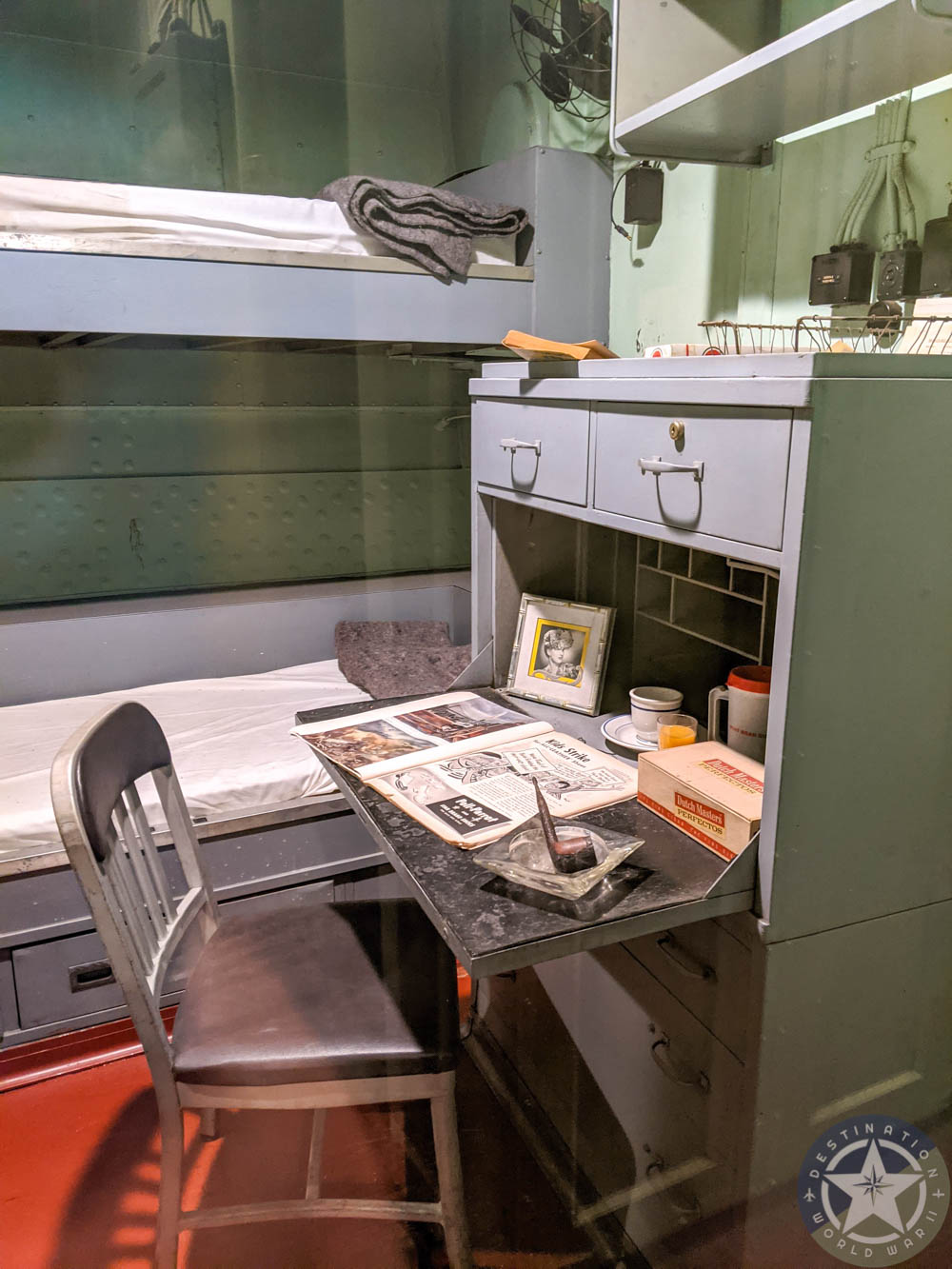
I’m a big fan of museums of all kinds, but I really prefer my artifacts in situ, and that’s exactly what you get when you tour U.S. battleship museums. You don’t just learn about history, you get to experience it.
If you’re in the Tampa, Florida area, be sure to visit the SS American Victory, an interesting World War II cargo ship and the last of its kind. Click that link for some helpful visitor tips!
2. U.S. battleship museums are such unique venues for learning
Museums are great, but they tend to be predictable. (Not always, but often.) U.S. battleship museums, on the other hand, are a totally unique venue for a museum–nothing ho-hum about them.
Instead of the typical collection of rooms you find in a standard museum, you now have an actual maze at your disposal. Doorways to duck through, engine rooms to pass through, weaponry to dodge, holes to crawl out of, and level after level after level to explore create a sense of youthful adventure a regular ol’ museum just can’t swing.
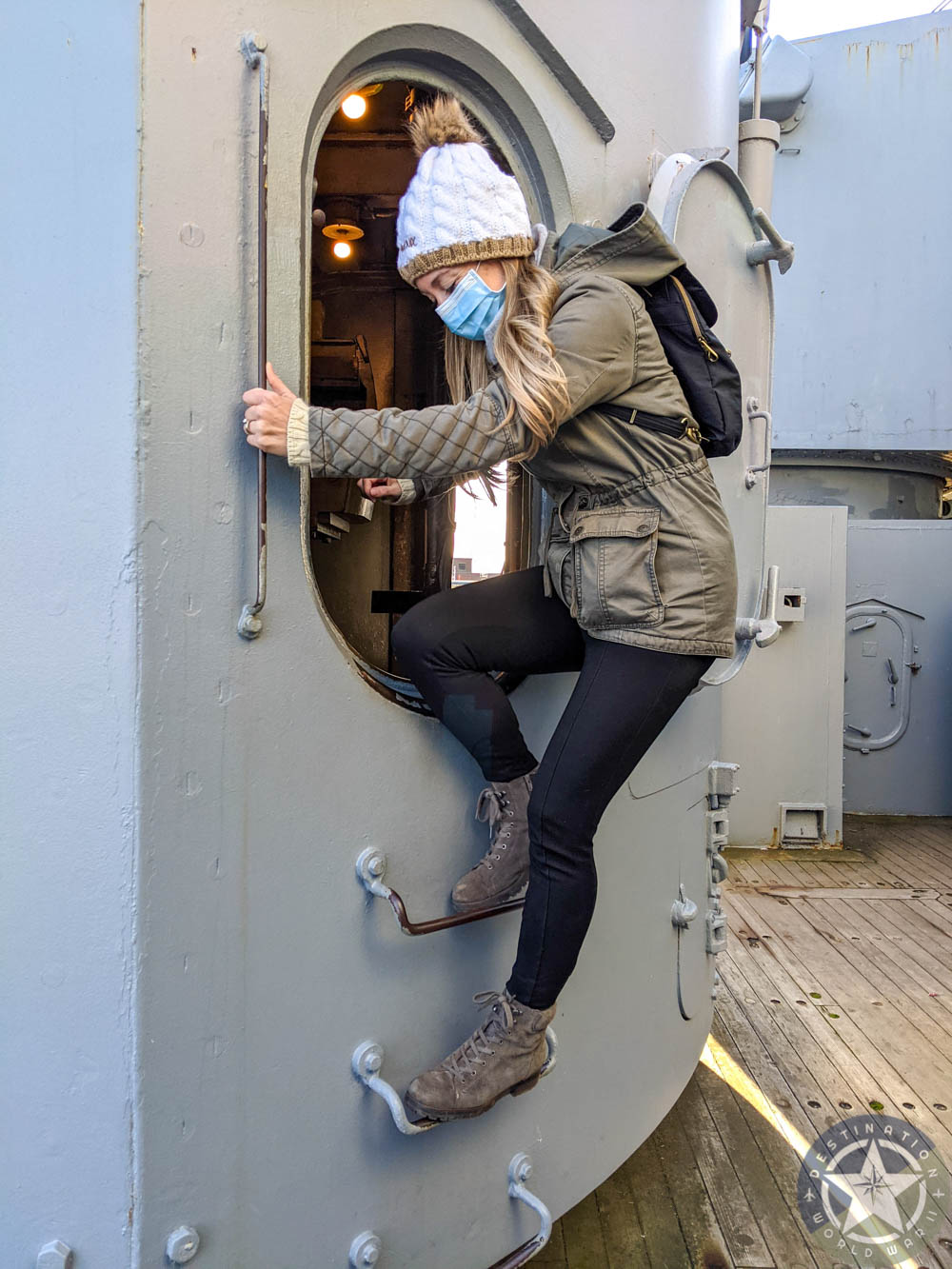
Plus, you’re free to roam alone. No need for guided tours, you can explore these ships at your own pace, in your own way. (Though they usually offer guided tours anyway.) An educational “choose your own adventure” story like none other. You will get lost at some point.
3. You get a real sense of WWII ship life
Regardless of how much reading and research you do on World War II topics, it’s hard to get a real sense of what life was like back then. (Which isn’t always a bad thing to be honest.) But when you’re aboard U.S. battleship museums, you can really get a feel for life aboard a ship during the war.
When you’re on a battlefield, there’s usually very little to see and your imagination has to work overtime. But when you’re on a WWII ship, it’s not hard at all to feel the isolation of life at sea, the claustrophobia of the cramped quarters, what must have been a constant sense of urgency, and the absolute need to overcome every obstacle encountered.
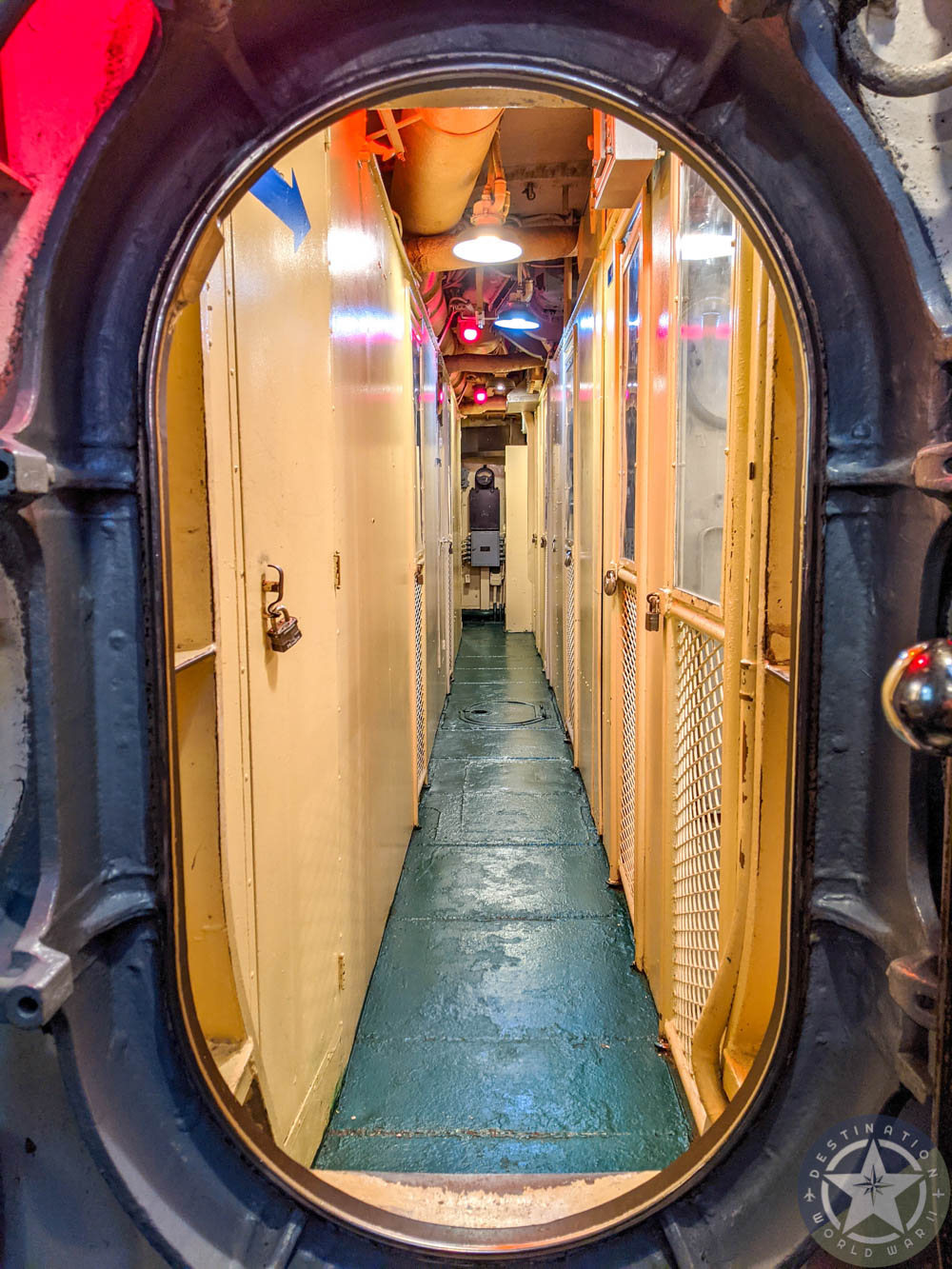
It’s easy to imagine a ship full of sailors when you see room after room stacked with sleeping bunks four-deep, or the assembly line setup of the kitchen serving station. It’s easy to commiserate with the ship’s crew when you find it hard to maneuver the low entryways, tight squeezes, and steep stairs. And it’s easier to understand fear and bravery when you stand on the ship’s deck and imagine a kamikaze fighter heading towards you.
Instead of looking at pictures of or reading letters about ship life, you’re getting to taste first-hand what it’s all about.
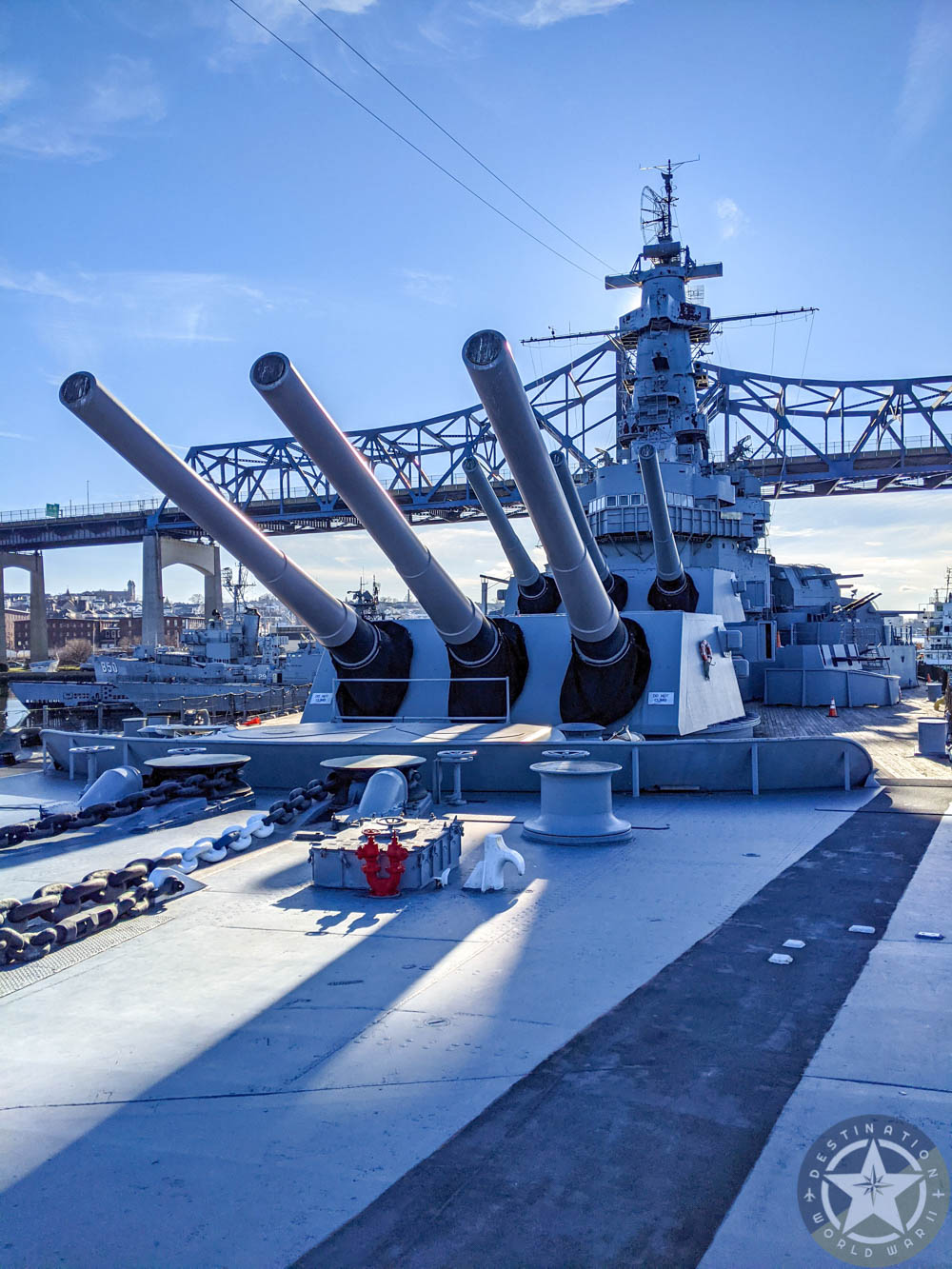
For more on visiting the incredible World War II battleship seen above–the USS Massachusetts at Battleship Cove–check out my post on WWII sites in Massachusetts. And while you’re in town, also check out the USS Cassin Young in downtown Boston.
4. You can spend the night
Yes, you can spend the night on a World War II battleship! Most of the U.S. battleship museums offer overnight programs. Some are specifically offered to boy/girl scout troops and/or church groups, while others, like the USS Wisconsin, offer adult/family overnights.
On these overnights you get to sleep in the same bunks the sailors used in World War II, enjoy an authentic chowline dinner, and experience what a night aboard the ship is like. Can other museums say that?
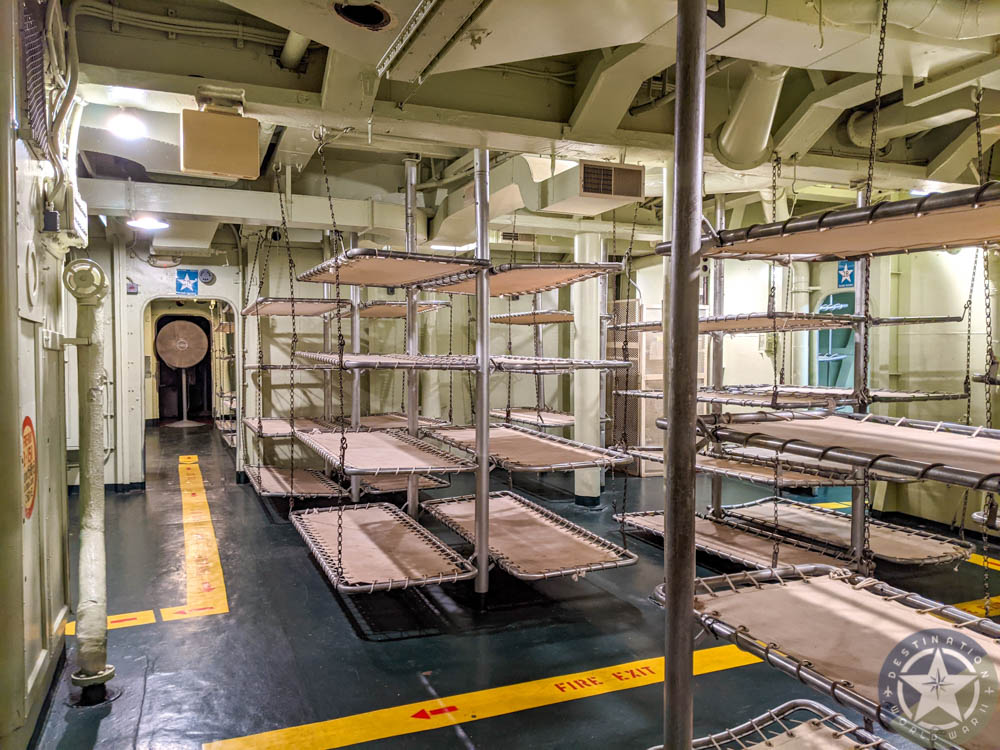
Some can be booked for birthday parties, and some, like the USS Cobia in Manitowoc, Wisconsin, can be booked as a simple VRBO stay.
Not all museum ships offer overnight programs but most of them do. You can start with these but there are plenty more:
- USS Massachusetts, Fall River, MA
- USS Alabama, Mobile, AL
- USS Intrepid, one of the WWII sites in New York City, NY – Admission to the Intrepid is included in the New York City CityPASS, a money-saving booklet for the city’s top visitor sites.
- USS Kidd, Baton Rouge, LA
- USS Yorktown, Mt. Pleasant, SC
- USS New Jersey, Camden, NJ – Admission to the USS New Jersey is included in the Philadelphia CityPASS (Yes, same ship, Philly is just across the water.)
- USS Little Rock, Buffalo, NY
- USS Wisconsin, Norfolk, VA
If you’re looking for a unique place to stay while you travel, be sure to check out my post on awesome WWII hotels and Airbnbs around the world.
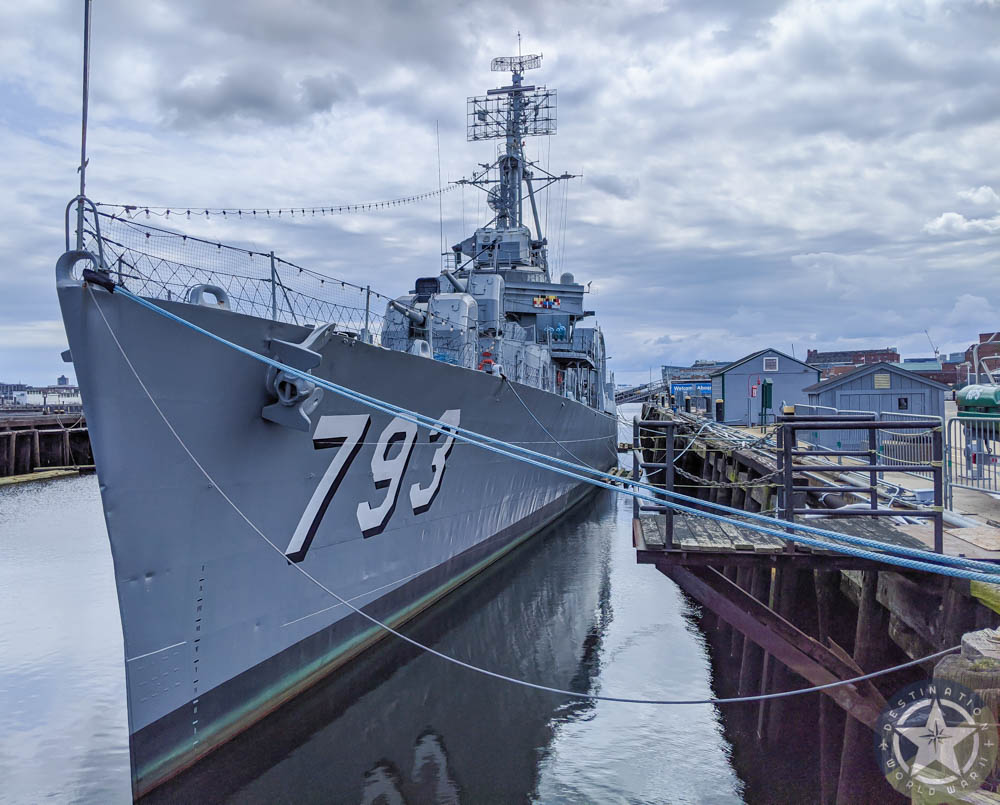
5. U.S. battleship museums help put everything to scale
Visiting U.S. battleship museums is a great way to really get a feel for the size, power, and magnitude of a warship. For example, seeing the size of the guns in person you can almost feel how powerful they must have been and how incredibly loud they must have sounded. And not until you’re directly under one can you really estimate this.
Battleships and other ships of all kinds look big in pictures, but not until you’re standing on one can you really feel the utter massiveness of these vessels. Plus, who doesn’t love standing next to giant anchors?
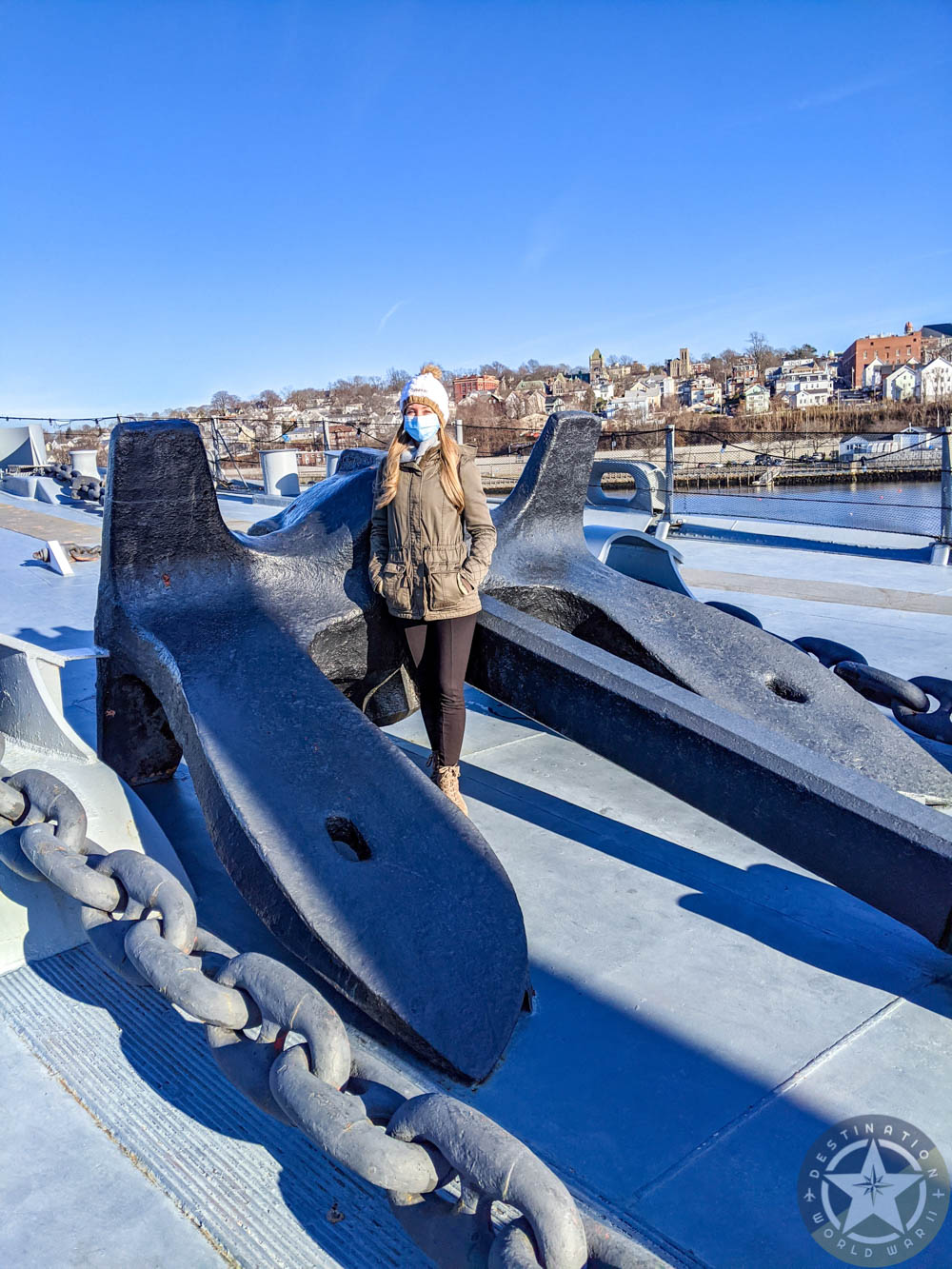
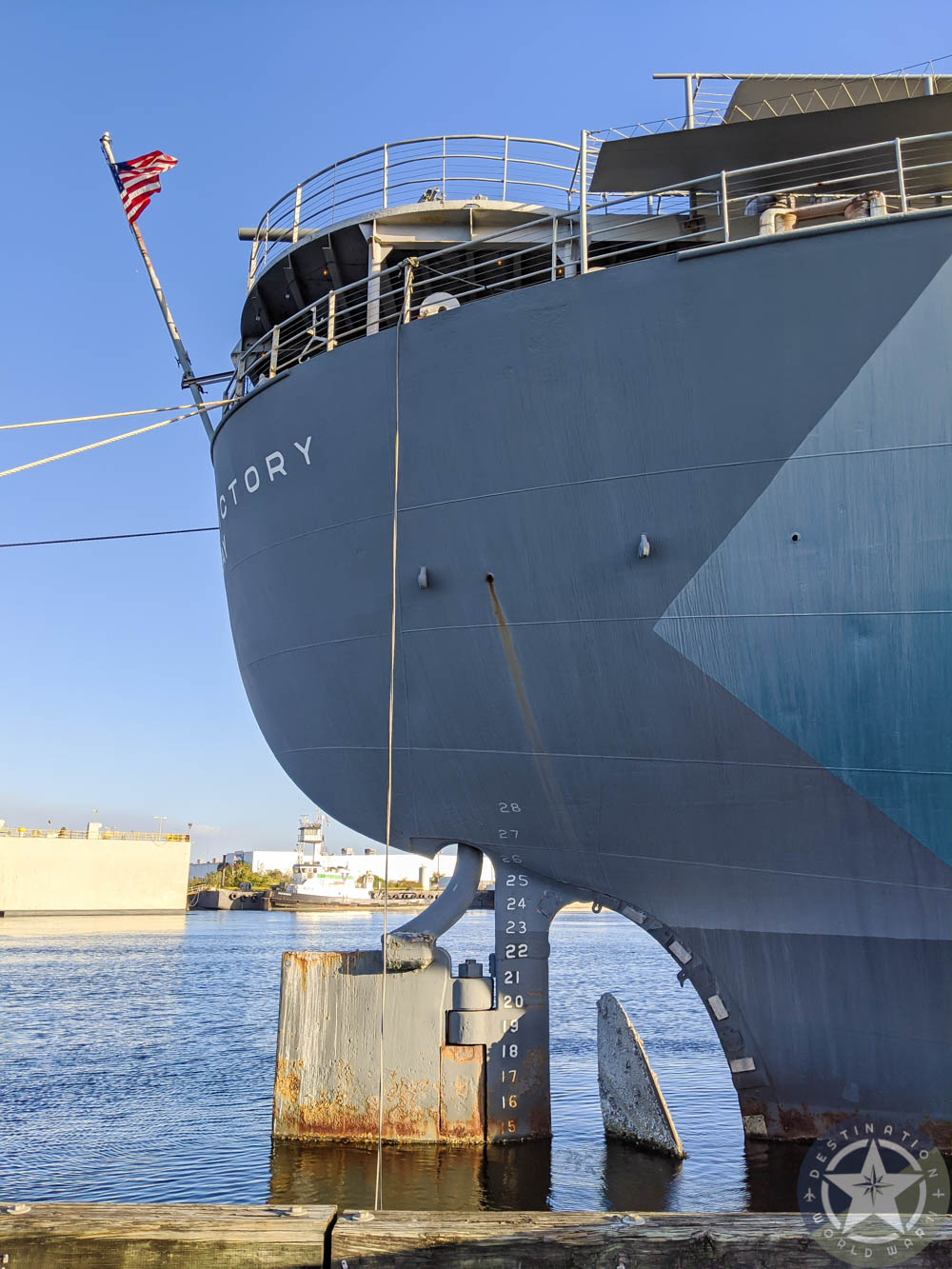
6. You are on an actual piece of history
While your standard museums are great for showcasing artifacts and teaching history, when you’re aboard the U.S. battleship museums, you’re actually on a piece of history. Oh, the things these ships have seen!
When visiting the USS Missouri at Pearl Harbor, for example, you are on the very battleship where Japan signed their surrender to end World War II. This makes it one of the most important locations in world history.
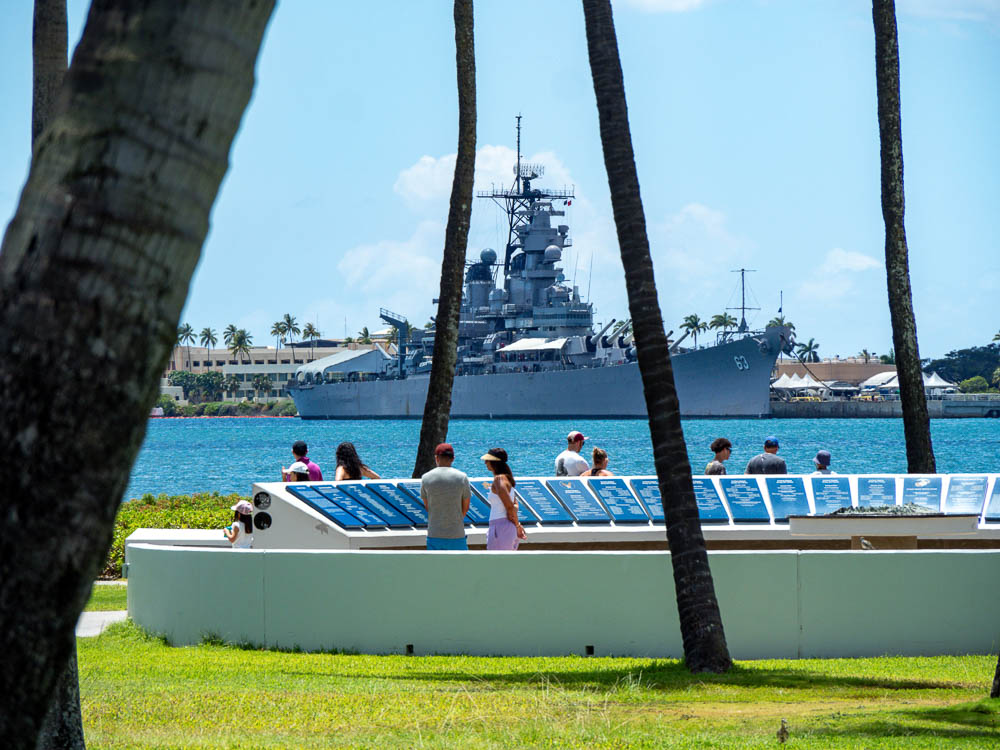
Did you know you can find many artifacts from the USS Arizona in the state of Arizona? Check out my post on all the WWII sites you can visit in Phoenix (and the surrounding areas) for all the info.
When you visit battleships, you visit battlefields. You’re walking on a ship where battles were fought and won, where precious cargo was shipped across oceans, where actual historical events took place, and that’s not something to take lightly.
You don’t just visit these ships to look at artifacts; the ships are the artifacts. It’s not just about what’s inside, but what the ship itself has seen and survived. The chipped paint and dents and battle scars all have a story to tell themselves.
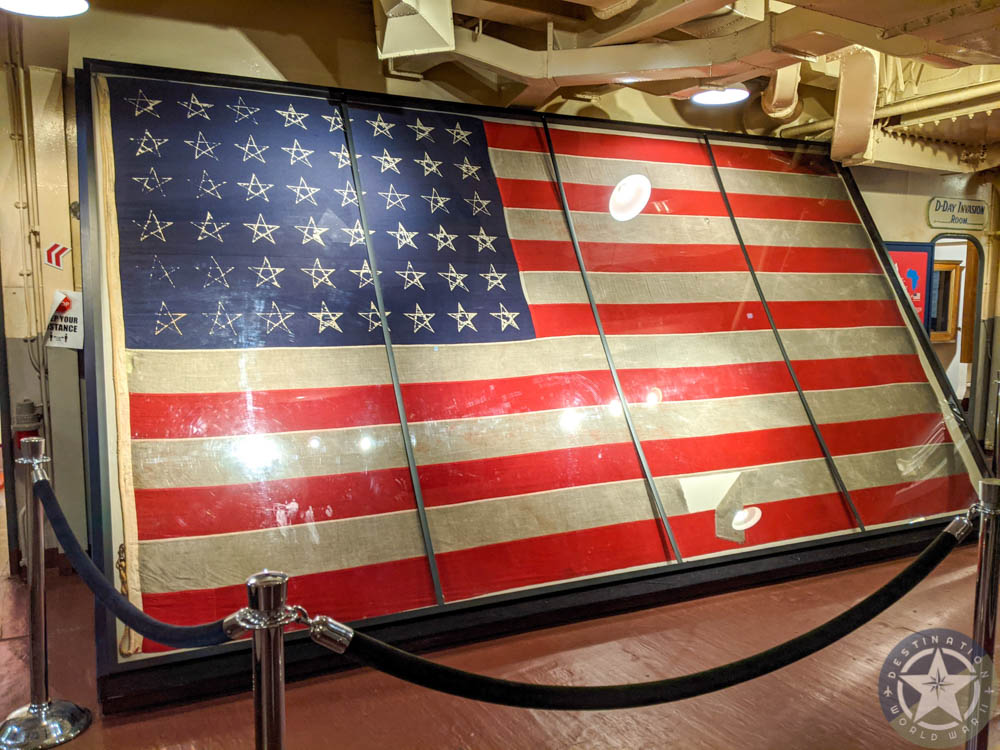
7. U.S. battleship museums signify a positive outcome
While many World War II museums around the world focus on the more horrific events and aspects of the war (understandably), visiting the many U.S. battleship museums means to focus on the positive outcomes.
The nature of these museums—the fact that the ship is still afloat for you to visit, that is—means the result of that ship’s service is something to celebrate. And though these museums do focus on their fair share of tragedy and can even serve as solemn memorials, the general feeling is one of triumph.
In short, spending a day on a museum ship involves a lot less sobbing and grief than, say, a visit to the Normandy landing beaches or Dachau Concentration Camp.
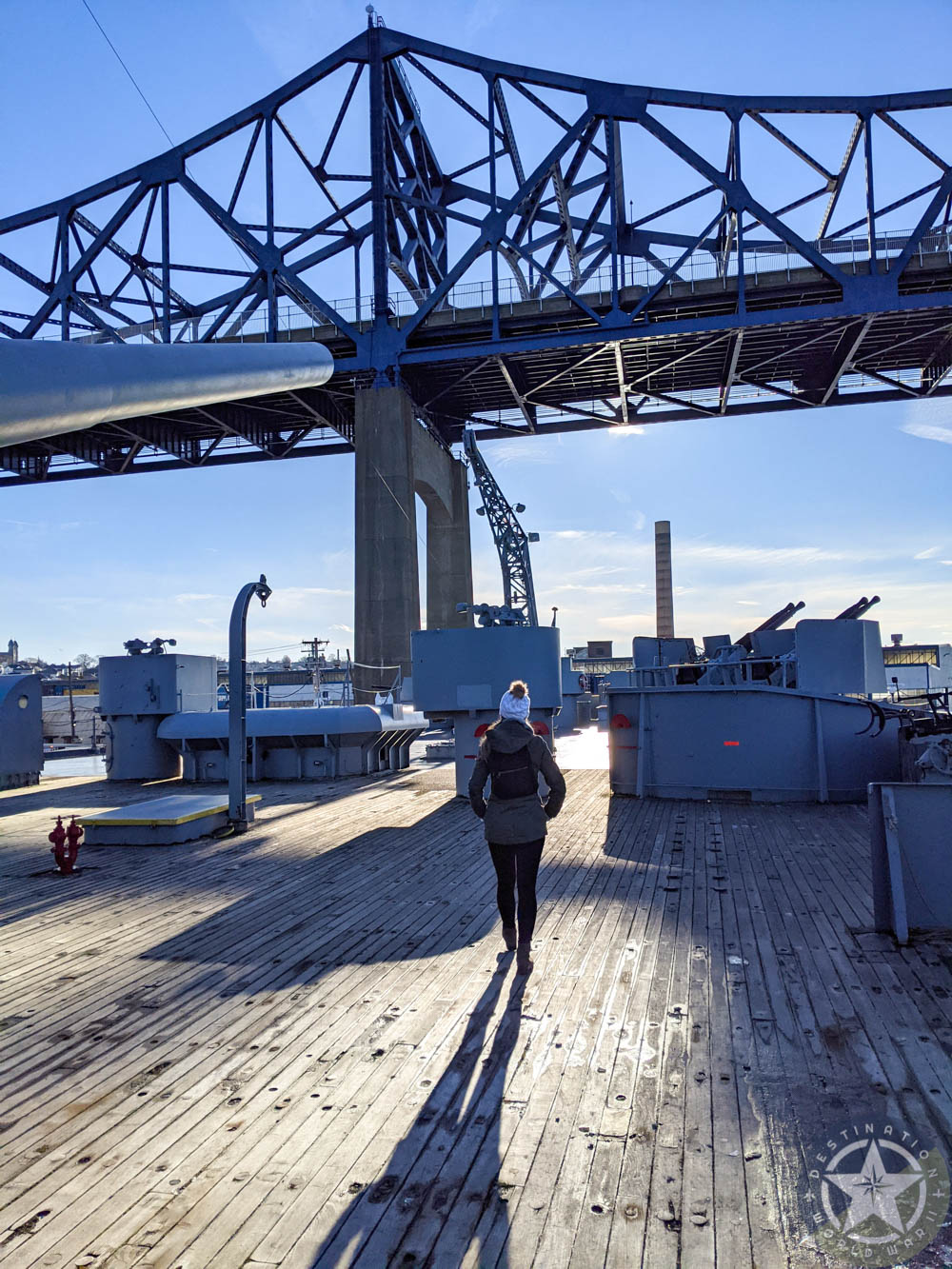
8. They offer great photo ops
Photo opportunities are not something you often see at World War II sites (thankfully). At many sites they can even be seen as offensive. (This is a large reason you don’t actually see more of me on this site.)
But U.S. battleship museums are a different, less somber animal. And because so there are actually many great chances for photos and even “selfie stations” at some. This adds an atmosphere of fun and frivolity that you don’t get to experience at other sites. (Still always be respectful though.)
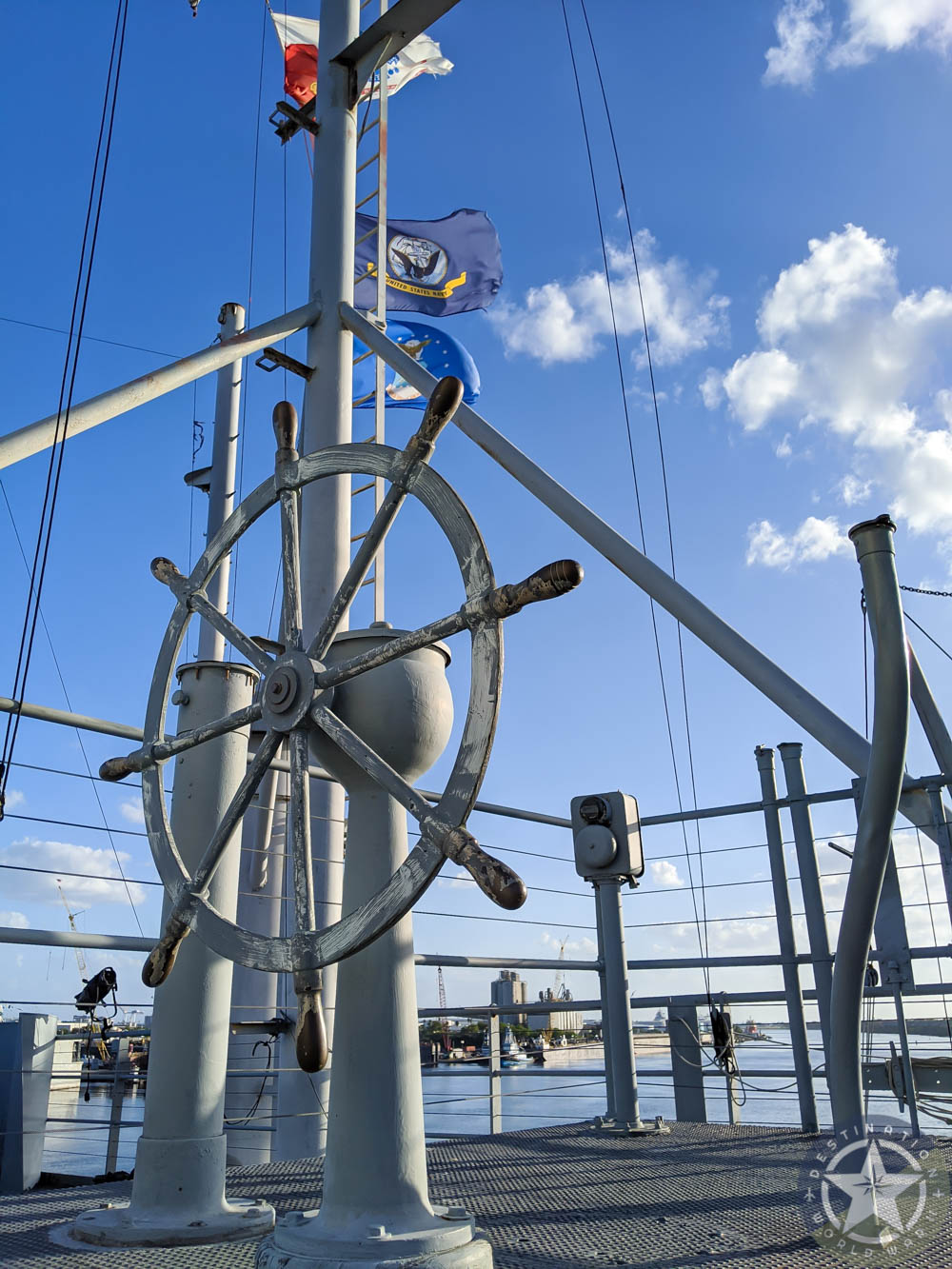
More info for your visits to museum ships
- Hotels: Find great places to stay on Booking.com (my go-to). Expedia and Hotels.com are worth checking too. VRBO is best for apartment rentals.
- Rental cars: Check out the best rental car deals here.
- Local tours & activities: Check out all the great local options from Viator and Get Your Guide here.
- Don’t forget a helpful guidebook.
Like this post? Have questions about visiting U.S. battleship museums? Let me know in the comments below. Thanks for reading.

Save this info, pin this image:
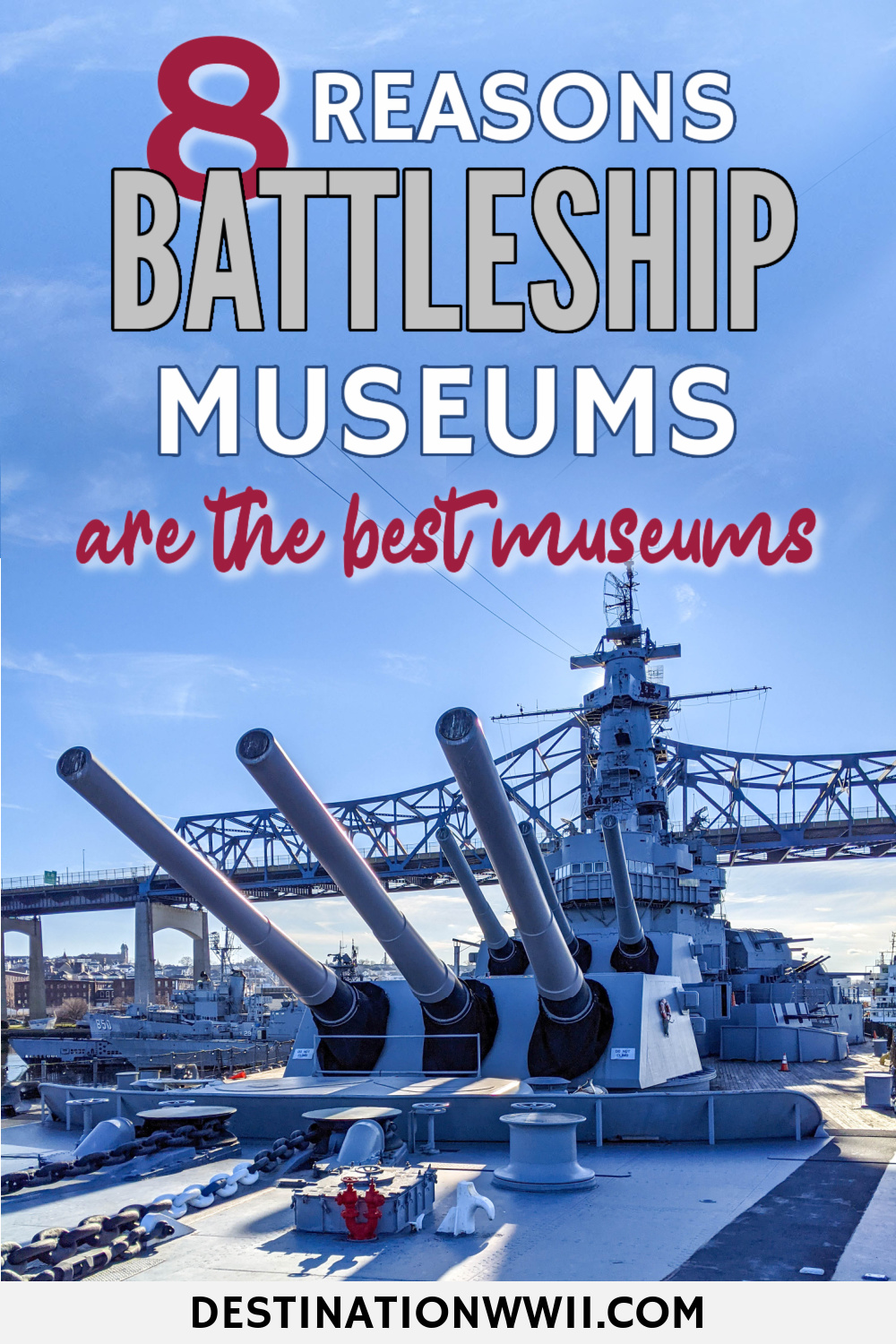


Hi Ashley,
This was a great read. My son and I have slept on the Massachusetts!
I will never forget it. The movie that night was The Incredible Mr. Limpet 🙂
Sam
Thank you! And that’s so cool – I really want to do that!